Michael R. Ash of the Mormon Times has been constructing a case for non-Lehite inhabitants of ancient America. The story is advancing slowly, but it takes a long time to dismantle statements from past church leaders, and to redefine words like ‘true’, ‘correct,’ ‘historicity’ and ‘verisimilitude’.
In case you missed it last time, here’s the problem: If the ‘Lehites’ — Hebrew immigrants to the Americas — were the only ones there, why don’t we see their DNA in current populations? How do we explain the incredible linguistic diversity of the Americas from just a few speakers of Semetic languages? Why don’t Native American languages today appear to have any trace of Hebrew or Egyptian? And as we discussed before, why is Ash having to explain away statements from Church leaders who believed that the land was empty except for the Lehites?
Ash and other LDS apologists have concluded that the land really was inhabited before the Lehites came along. (Which is quite correct, except for the part about the Lehites coming along.) However, the Book of Mormon has some trouble fitting into this model, in part because of the puzzling failure of the Lehites to mention anyone not of Hebrew origin in the Book of Mormon narrative.
In his latest column, Ash gives two possible reasons why the Nephites didn’t mention the ‘other people’ they were surrounded by:
1) the early material from Large Plates — which may have mentioned “others” — was not included in our English translation
This resembles the logic that George W. Bush used when WMDs weren’t found in Iraq: Maybe they’re over there! No? How about over there? Don’t worry, we’ll find ’em someday.
Okay, so the Lehites might have mentioned ‘others’ in the Large Plates. They also might have mentioned potatoes and pumpkins, which they almost certainly ate, but which don’t get a mention in the Book of Mormon. Who knows? It might be true, but it seems a bit (again) prestidigitatious to push the possibility onto a book that no one has access to.
And this is part of the problem with some of Ash’s arguments: they’re terribly speculative. Is it wrong to speculate? Well, no, not always. But Ash is asking us to believe his speculations, having just trashed a lot of speculations by LDS leaders who are much more authoritative than he is. Should we believe Michael Ash, or Joseph Smith? Or I’ve got an idea. How about neither?
and 2) the Small Plates were focused on the ethnogenesis and religious ministry of the Nephite people and would have been unconcerned with any “others” in such a narrative.
Hmm. Tell me more.
From a close reading of the Book of Mormon text, we find that Nephites and Lamanites were sociopolitical names. The Book of Mormon writers were Nephites, and virtually everyone else is referred to with the exonym Lamanite (the term “Lamanite” will be discussed in greater detail in the near future).
Well, I am impressed with the word ‘exonym’. Should be a corker if I can use it in Scrabble on a triple word score. And I can’t wait for him to redefine ‘Lamanite’. Perhaps it will mean ‘person with no DNA whatsoever’.
But I’m getting away from the point. Ash (and now-frequent commenter Seth R.) are arguing that the Lehites didn’t really care so much about the hoards of original inhabitants around them. They never wrote about them because they weren’t in the habit of writing about people not of their group. You know how ethnocentric those ancient people were! (Oh, you don’t? I’m betting Seth and Mr Ash don’t either.)
Of course, this is flat wrong. Lehites in the Book of Mormon do in fact run into other people, and write about them. They run into the ‘people of Zarahemla‘ (which Latter-day Saints now call Mulekites), who allegedly came from bible lands in a different group from the Lehites.
Mulekites, for their part, also encountered and wrote about someone not of their own tribe: Coriantumr. He was supposed to be a decendant of the Jaredites, also allegedly from the Middle East.
So people in the Book of Mormon do find and write about people not of their own immediate group. But they never encounter any of the real native inhabitants of the Americas, like we’d expect them to. They just keep bumping into people from the Middle East. (What are the odds?) And why? I think it’s because the author of the Book of Mormon really was advancing a hypothesis that the Hebrews were the only ones there. The Book of Mormon is an origin myth, attempting to explain how people got to the New World. A hundred and fifty years ago, the idea that they came from the land of the Hebrews was a plausible hypothesis, but the idea has been thoroughly dismanted by a century of evidence from archaeology, anthropology, genetics, and linguistics.
Notice once again that Ash doesn’t advance any testable notions of where Lehites were. He doesn’t have to. All he has to do is blur things so that his preconceived conclusion could be true. Maybe it is true. Maybe not. As long as it preserves the faith, what does it matter?
Let’s move on. The next part is genius.
Another of the weaknesses of the Book of Mormon is that it postulates an absurdly fecund population model once the Lehites arrive. There’s no way you could have as many people as the Book of Mormon claims from just the Lehites. But watch the jiu jitsu: Ash uses this problem to cancel out the problem of the invisible ‘others’!
Within 15 years, Joseph and Jacob were made priests and teachers “over the land of my (Nephi’s) people” (2 Nephi 5:26). We read that within 25 years of their New World arrival, the Nephites were at “war” with the Lamanites. What kind of “war” could possibly exist with the few adults that may have been around without the infusion of pre-existing cultures?
Fifteen years later, some of the Nephite men began desiring “many wives and concubines” (Jacob 1:15). How many women could there have been if there were no others besides the original Lehite party?
…
By about 200 B.C. “corn” (American maize) is mentioned as the grain of preference among the Lamanites (Mosiah 7:22, 9:14). Corn, a uniquely American grain, could not have been brought from Lehi’s world and could not have been discovered wild upon arrival because of its complex cultivating techniques that will only reproduce new corn with human care. This strongly implies that others already were cultivating corn and taught the technique to Book of Mormon peoples.
Beginning about 500 years after the Lehites arrived, we read about “thousands” or even tens of thousands of warring soldiers. Such a rapid population growth would not have been possible without the presence of “others.”
This is amazing stuff. I wonder if I could try that.
You know how people criticise the Book of Mormon for containing the word ‘adieu‘? Of course, Joseph Smith could have used any French words he knew when translating, but I have a better answer. French speakers might have migrated to ancient America, swimming over on horses, which is why Book of Mormon people had them. After all, it must be trivial to migrate from Jerusalem to some undefined point in North/South/Central America. The Book of Mormon describes it happening on three separate occasions, so it could have happened again. There’s nothing you can’t do as long as you have the Lord, and enough barley for your swimming horse.
People say that the use of swords and cimeters in the Book of Mormon is anachronistic. But they haven’t considered the real source of swords and cimeters: the post-mortal Paul, who might have minstered unto the Lehites through time travel. Here he distributed cutlery unto the Lehites, and also gave his famous (through eerily New Testamental) discourse about charity, which eventually filtered down to Moroni.
Damn, I hope Ash is getting paid for this. It’s hard work. Doing apologetics with this kind of material, I mean. Well, that and getting paid for something that others would gladly do for free.
UPDATE: It occurred to me that Paul didn’t have to be ‘post-mortal’ if he had a time machine. He could have been alive when he handed the scimeters to the Lehites (and subsequently collected them so as not to leave evidence). But whether he was alive or not at the time hasn’t yet been revealed. It must not be important for our salvation. As always, prayer is the only way to really be certain of my conclusions, like I am. Really certain.
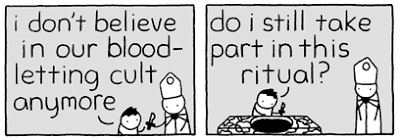

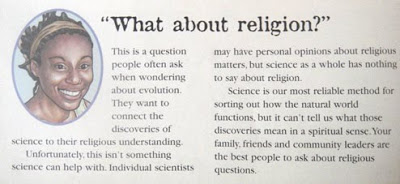



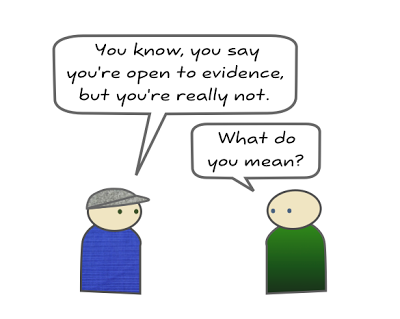

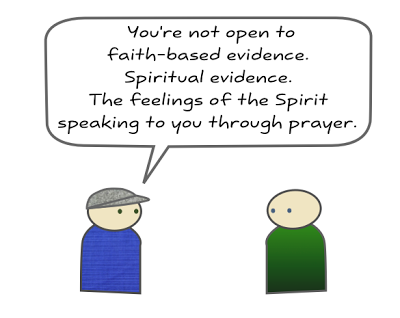
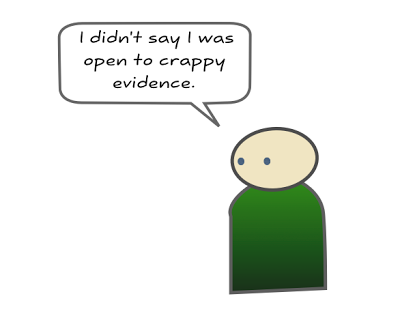
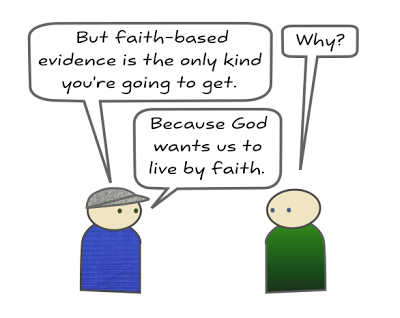
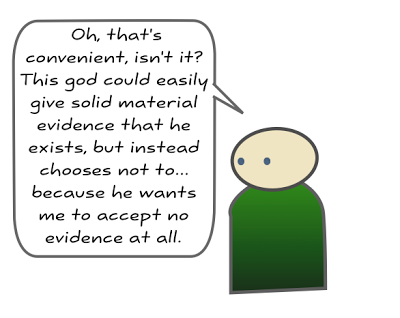
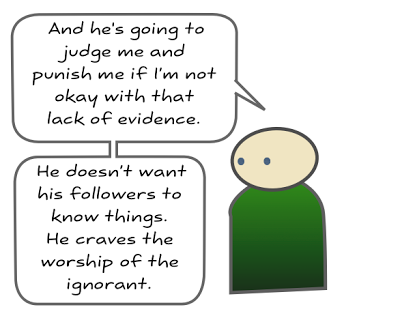
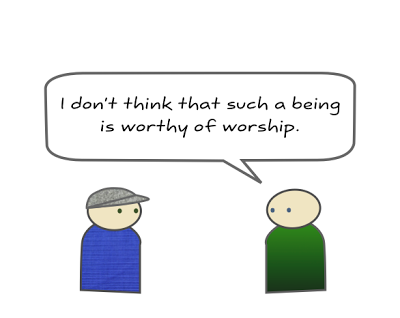



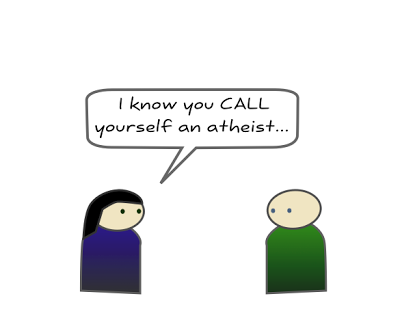

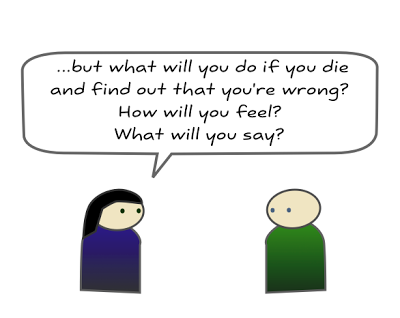
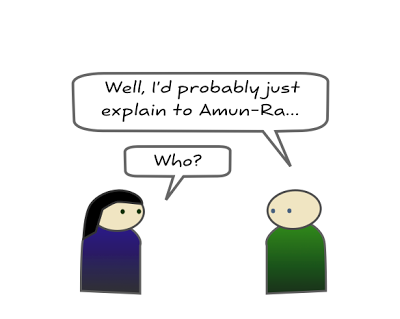
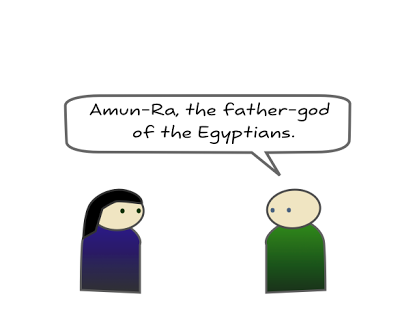
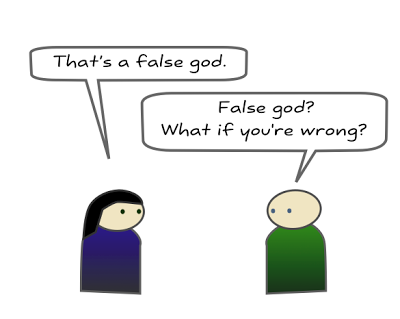
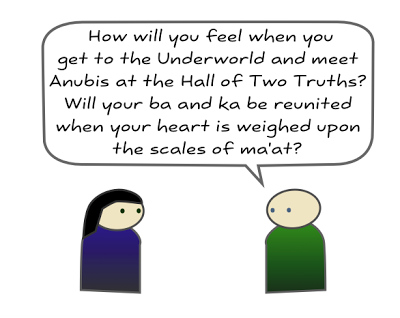
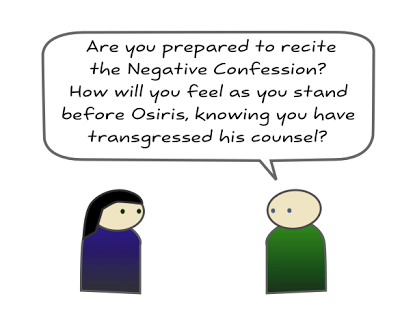
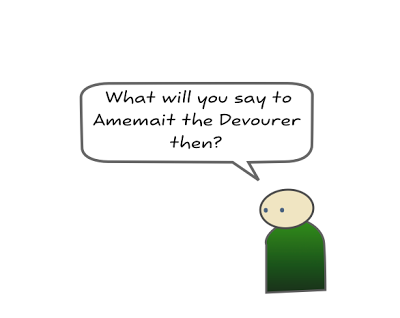
Recent Comments